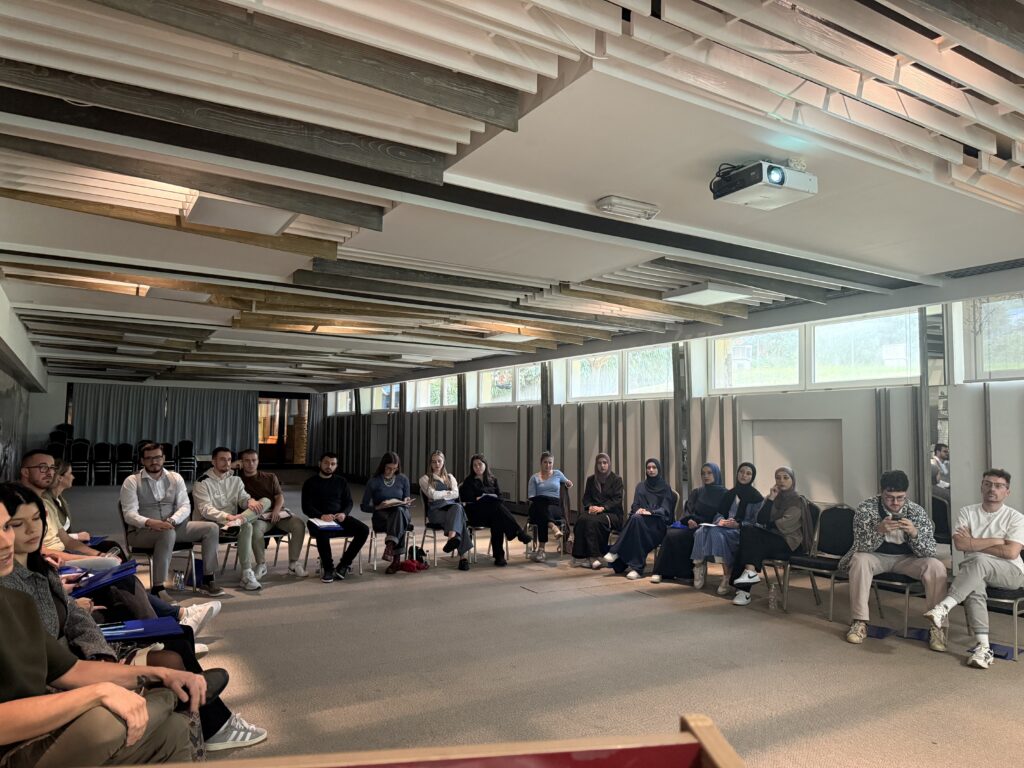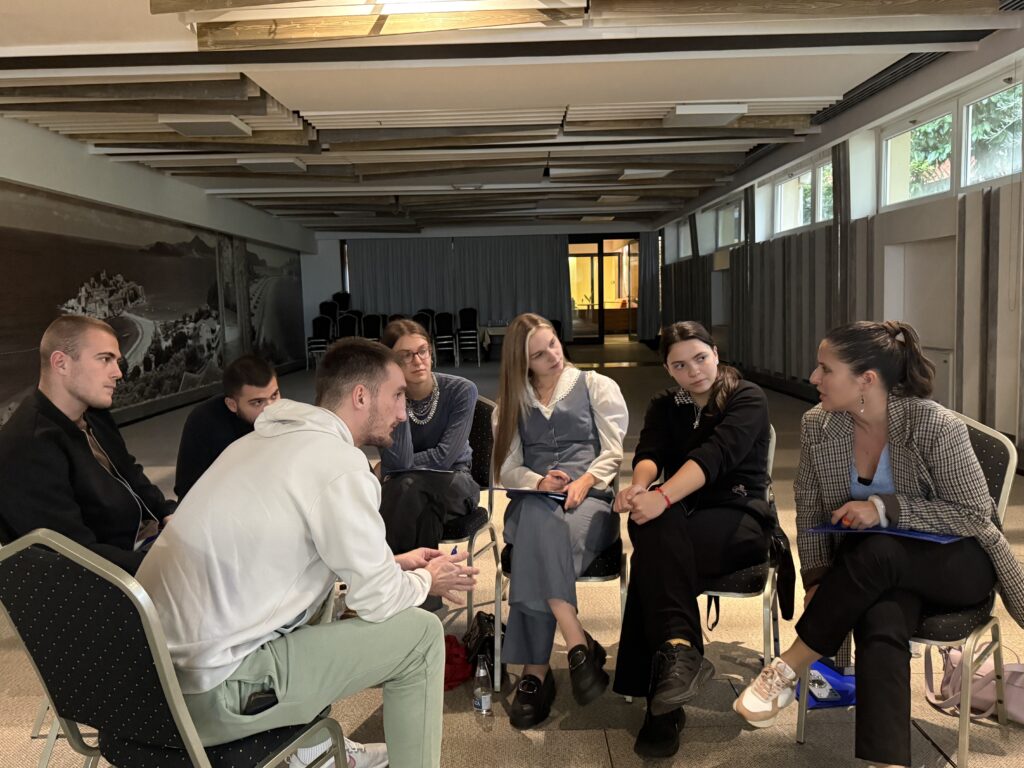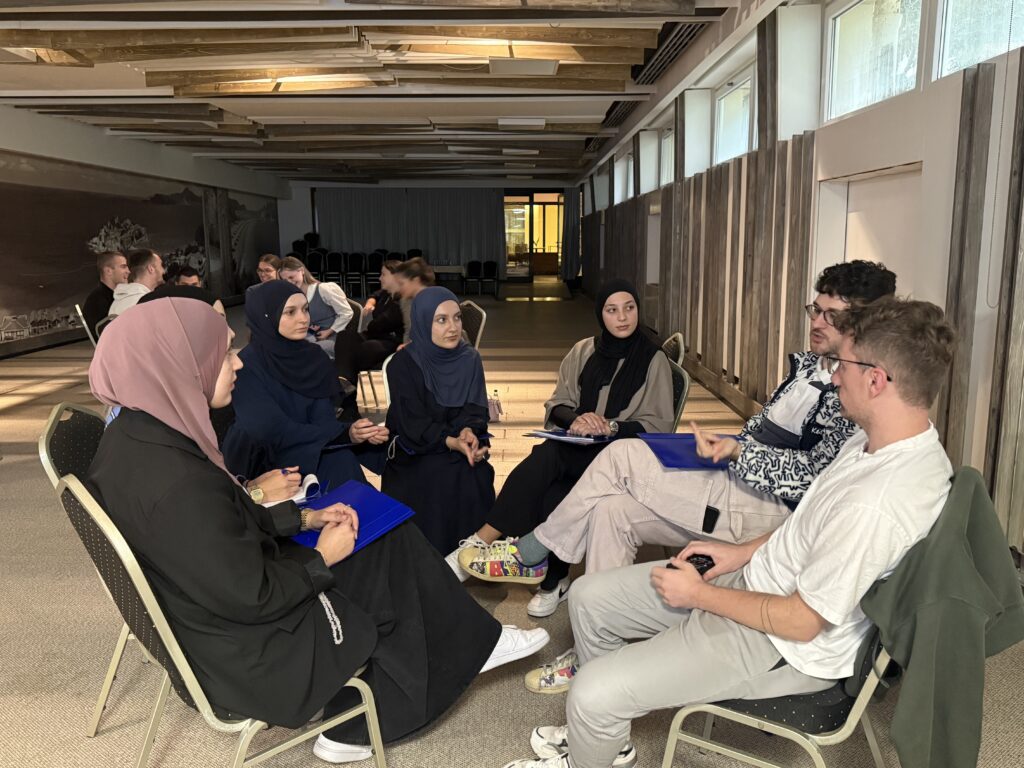Digital literacy is not merely a technical skill, but the ability to recognize manipulation, understand how algorithms work, protect one’s identity, and support others, it was assessed at the three-day Youth Digital Rights Laboratory organized by the Centre for Civic Education (CCE) in Petrovac from 17 to 19 October 2025.
The Laboratory brought together 23 young people from different parts of Montenegro, who learned from 11 lecturers from Montenegro and abroad about freedom of expression, privacy, data protection, the right to information, online violence, and hate speech. They also acquired practical skills for advocating and protecting digital rights, while being encouraged to think critically and engage effectively in the digital space.

“Social media and online platforms are the main channels of information and citizen mobilization, making the digital space a key tool for initiating change, advocating for rights, and empowering communities. However, it is equally important to understand how disinformation can affect digital campaigns by undermining the credibility of activists and organizations, hindering the achievement of goals, and spreading distrust and polarization in society. Developing digital literacy and critical thinking is an essential step towards successful and sustainable digital activism,” said Draško Jabučanin from the Digital Forensic Center (DFC), who led a workshop on digital activism, emphasizing that this is nowadays the most significant form of activism.
“In a time when many battles are fought online, the digital space becomes the place where decisions are shaped, and reality is changed. Through examples of campaigns by the KOD Organization, we demonstrated how citizens, with knowledge, creativity, and persistence, can initiate change and influence public policies using the very tools they have in their hands every day,” stated Miodrag Vujović from the KOD Organization, who conducted a session on advocacy in the digital space.

According to the participants, the programme was inspiring to see the online space and themselves within it differently.
“Each session contributed to the gradual acquisition of knowledge that will help us have a more practical, conscious, and safer online experience,” said Darko Savović from Podgorica. “After these three days, it’s natural to pay more attention to these topics in everyday life, with a sincere hope that there will be more such educational programs in the future,” he added.
Nedim Nokić from Rožaje also shared a positive experience. “It was encouraging to see how many young people want to contribute to a safer, more informed, and more responsible online space. I am additionally motivated to stay informed, share knowledge, and contribute to raising awareness about digital rights and safe online behavior,” he said.

Similar impressions were shared by Kristina Lješković from Nikšić. “What inspired me most was the openness and energy of both the lecturers and participants. The discussions motivated me to get more involved and think more deeply about my role in the digital world. Meeting experts from different fields helped me broaden my own horizons, question existing attitudes, and see the digital space as a space of struggle, but also of creation not only of technology, but also of responsibility and justice,” she underlined.
“During the programme, I met wonderful people and gained new knowledge about digital literacy and security.What inspired me most was the energy of the participants and lecturers, who demonstrated how important it is for young people to actively participate in creating a safer online environment. I would particularly point to the lecture on privacy protection, which encouraged me to think more about my digital footprint,” said Selma Plunac from Rožaje, emphasizing the usefulness of the programme.
The Youth Digital Rights Laboratory is part of the program Protection of Rights and Promotion of Digital Citizenship: Montenegrin Digital Shield (MDS), implemented by the CCE in partnership with the SHARE Foundation, in cooperation with the Agency for Audiovisual Media Services, with financial support from the European Union and co-funding by the Ministry of Regional-Developmental Investments and Cooperation with Non-Governmental Organizations.
Alma Novalić, Project Assistant
